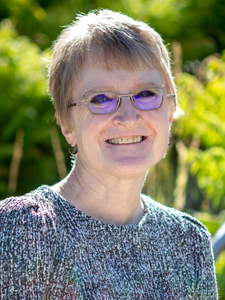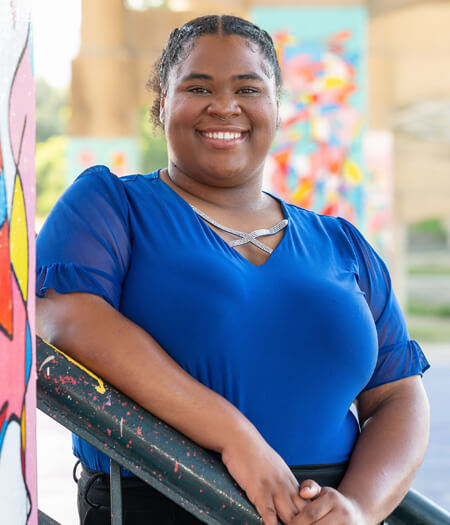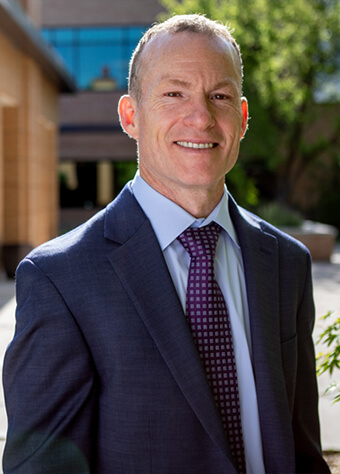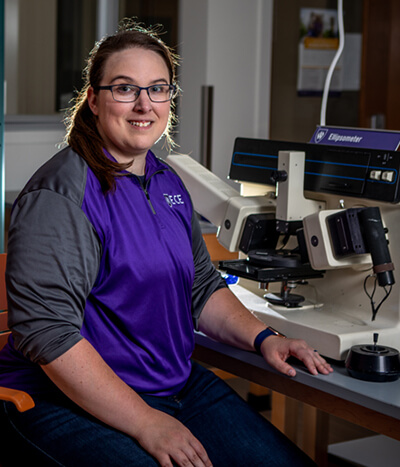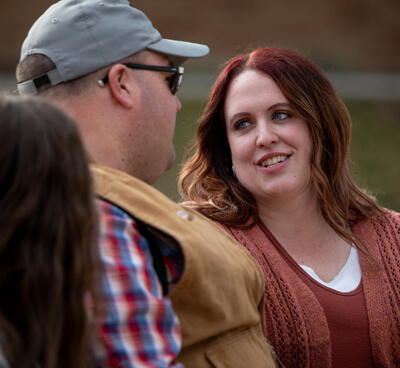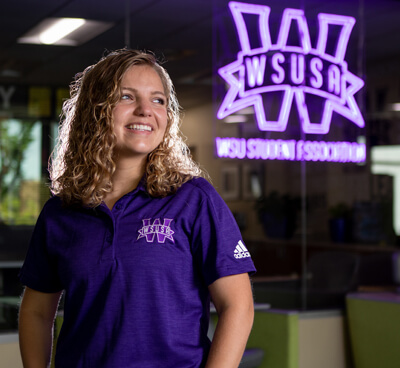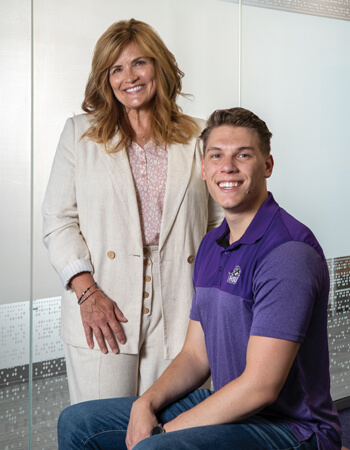Enallia Brooks has come a long way. Now, in her last year of school at Weber State, she reflects on her journey with a smile.
“I just came to the conclusion I can’t leave Weber,” she chuckled. “I’m destined to be here.”
As young children, Brooks and her two siblings lived in Texas with their grandmother, who struggled to provide stable housing, and sometimes slept in hotels or shelters. Due to their grandmother’s declining health, when Brooks was 12, the children moved in with their mother and enrolled in school for the first time.
“I was in fifth grade, and I didn’t know anything,” she said. “I couldn’t spell C-A-T. I didn’t know my vowels… I understood English, but I couldn’t read English.”
The family moved often, and Brooks remembers some schools she attended lacking basic equipment, like chairs. She and her siblings persevered and by the time she was taking standardized tests during junior high school, she scored at the same level or higher than her peers.
“For my mom, that’s when the possibility of at least one of her kids going to college was starting to actually make her excited,” Brooks said.
Brooks, however, wasn’t convinced college was in her future, even as she neared graduation from Eldorado High School in Nevada. Having participated in Weber State’s TRiO and Upward Bound programs, she met Gregory Noel, who served as an admissions advisor. Now a licensed associate marriage and family therapist, Noel said he is honored to have played a small role in Brooks’ success at Weber State.
“Enallia has been someone I’ve seen a lot of perseverance, resilience and just this innate and inherent drive to pursue her goals and her dreams from,” Noel said.
She enrolled with plans to eventually pursue dentistry but didn’t enjoy her classes and began contemplating dropping out. She then discovered architecture and started taking classes in the Building Design & Construction program.
“I like how the program allows us to get experience in the real world,” she said.
Professor Jeremy Farner encouraged Brooks to follow her dreams.
“As an educator, I feel like it’s my responsibility to encourage the next generation,” he said. “To me, that is what I enjoy most about my job. It’s the interactions I get to have with students.”
Brooks said after she graduates she wants to work with Habitat for Humanity to rebuild low-income communities, and design and build schools.
“I really want to give back to my community but in a way that’s going to inspire kids to continue their education,” she said.





